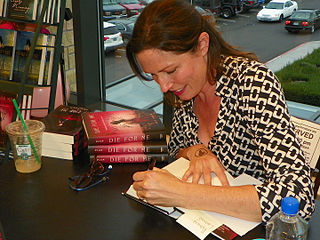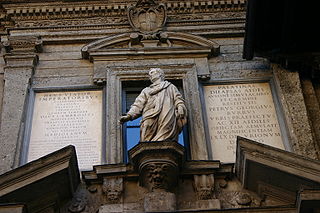A Quote by Karl Kraus
Related Quotes
For the law, the clarity of language and the finality of judgment is crucial, because you have to decide a case one way or another - whether it is criminal or civil or whatever. In ordinary life, you do not have to decide things with absolute finality. You do not have to decide on a theory in order to behave in a certain way towards other people.
Some suffering is given in order to chastise and correct a person for wrongful patterns of life (as in the case of Jonah imperiled by the storm), some suffering is given not to correct past wrongs but to prevent future ones (as in the case of Joseph sold into slavery), and some suffering has no purpose other than to lead a person to love God more ardently for himself alone and so discover the ultimate peace and freedom.
Those who promote the politically correct theory are favored with billions from government grants and neo-Marxist environmentalist largesse, and official recognition and award. Faked and tampered data and evidence has arisen in favor of the politically correct theory. Is not man-caused, catastrophic global warming now the only theory allowed to be taught in the West?
There was a time when I let go of the reins and thought, What's meant to happen will happen. That's probably one of my biggest faults as a person, and something that I've had to work really hard on: believing in this idea that the universe will decide for me. The universe is not going to decide in your favor.
The fact that we're all hyphenating our names suggests that we are afraid of being assimilated. I was talking on the BBC recently, and this woman introduced me as being "in favor of assimilation." I said, "I'm not in favor of assimilation." I am no more in favor of assimilation than I am in favor of the Pacific Ocean. Assimilation is not something to oppose or favor - it just happens.
We cannot begin with complete doubt. We must begin with all the prejudices which we actually have when we enter upon the study ofphilosophy. These prejudices are not to be dispelled by a maxim, for they are things which it does not occur to us can be questioned. A person may, it is true, in the course of his studies, find reason to doubt what he began by believing; but in that case he doubts because he has a positive reason for it, and not on account of the Cartesian maxim. Let us not pretend to doubt in philosophy what we do not doubt in our hearts.
There are many different kinds of doubt. When we doubt the future, we call it worry. When doubt other people we call is suspicion. When we doubt ourselves we call it inferiority. When we doubt God we call it unbelief. When we doubt what we hear on television we call it intelligence! When we doubt everything we call it cynicism or skepticism.






































